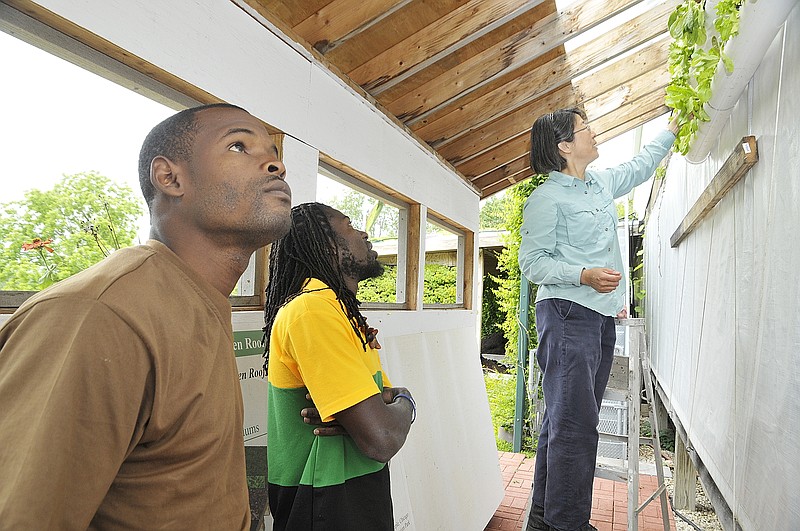Organic, sustainable farming has become a specialty for faculty and technicians at Lincoln University.
More than 100 local farmers or those interested in agriculture are expected to attend the third annual Alternative/Organic Agriculture Field Day today at the Alan T. Busby Farm.
Two visitors from Jamaica, through the One Love Learning Foundation, also will attend the day of tours and research explanations.
In April, several students, faculty and administrators from Lincoln visited Herbert Brooks and Byondlee Watson, among other entrepreneurs and educators in Jamaica. It was the first step in the development of a long-term cooperation between the university and the Caribbean nation.
This week, Brooks and Watson have seen a variety of different agricultural techniques.
Today's field day will include the combination of forestry and grazing called silvopasture, composting, biochar, no-till pumpkins and cover crops, organic disease management, organic blueberry production, invasive insect management, solar-powered irrigation and livestock water, organic weed management, multi-specie grazing, native edibles and native plants for pollinators, and farmscaping.
Lincoln's expert faculty and extension employees will focus on organic practices, which are what the Jamaican farmers use and the only method used at Busby Farm.
Brooks and Watson learned about best composting practices Tuesday morning from Hwei-Yiing Johnson, as she emphasized the required balance of moisture, heat, oxygen and carbon. They were particularly interested in the worm composting, for which their tropical climate is well-suited, Brooks said.
Between the two visits, one difference in technique has become clear - manual versus mechanization.
The Lincoln visitors this spring were amazed at what the Jamaican agriculture industry was capable of doing solely by hand. Whereas, Brooks and Watson said they were impressed the reduced labor and time using machinery.
Plants and flowers can grow year-round in the steady climate of Jamaica. So the visitors were surprised to hear about the growing seasons and cycles Midwestern farmers follow.
"We just throw them in the ground and they grow," Watson said.
They were eager to learn about sheep health assessment technique and the efficiency of the fisheries.
"We appreciate Lincoln University," Brooks said. "We will gather as much knowledge as we can get and pass it on to others."
Additional coverage:

